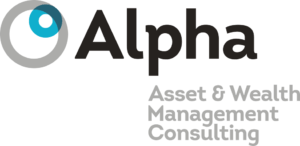Our 12th global report shows that the wealth management industry is undergoing significant transformation as it adopts digital and new technologies to deliver efficiencies while increasingly providing personalised solutions and enhanced overall customer experience. At different stages
on their digital roadmaps, firms and institutions continue to progress at pace, narrowing gaps across businesses, regions and investment decisions.
- Digitalisation: Following the substantial investment and progress seen in the last two years, respondents gave their firms an average score of 5.3 out of 7. This is a marked increase from the 4.7 seen in 2023, making it the highest average score since 2021. Overall, this is in line with market anticipations of progress at pace. All respondents reported that their firms are showing good and acceptable progress against expectations (100% scores above 4) while 7 per cent felt able to give their firm a full rating of 7 for digitisation.
- Regional Differences: The gap in digitalisation between regions also continues to close. This year, we extended the study to include Africa in addition to MENA and Latin America. The highest scores are still registered in North America, Europe, and the United Kingdom. MENA, Latin America and Africa show significant progress, albeit dependent on their infrastructure and regional challenges.
- Automation: Likewise, the level of automation has risen consistently over the years, with firms and institutions reporting various stages of implementation, depending on their size and structure. Industry leaders set the pace, with both core services and outsourced non-core services integrated to streamline processes such as portfolio management, client onboarding, and reporting. On average, firms and institutions are reporting that 70 per cent are gaining momentum on maximising automation in portfolio construction and rebalancing, well ahead of the 65 per cent
scored the previous year. - Data continues to underscore the effectiveness and success of the automation of processes and digitisation of the client journey. There are still challenges related to data, from data input points to timeliness and accessibility. However, most firms are progressing along that journey, with respondents giving an average score of 73.5 per cent for reliability, timeliness, and accessibility – an increase on the 65 per cent average score from last year. The best-rated firms scored 93 per cent, against the lowest score of 69.5 per cent, highlighting the gaps still existing for businesses.
- Client Custodial Data is crucial for firms set to optimise service delivery and enhance client relationships. By leveraging this data effectively, firms can make better-informed investment decisions, monitor portfolio performance, and ensure accurate reporting for regulatory and tax compliance.
With an average score of 5 and the lowest score of just under 5, the findings reflect this strategic importance. This continues the ongoing strong trend for a data-driven and client-centric approach that was so prevalent last year. - Risk for wealth management firms is increasingly complex and multifaceted, driven by a rapidly evolving landscape that includes integrations of legacy systems with advanced technology and applications; business resilience in the light of recent global IT outages, cybersecurity and DDOS; compliance and regulatory changes, market and geopolitical volatility, and shifting client expectations. Additionally, managing the everyday operational risks is critical to maintaining trust and safeguarding client assets. The expected score was high; in fact, the overall average score registered was 5.7 – the lowest score at 5.2 for asset managers, while the highest score was just under 7 for fund managers.
- Outsourced Services are becoming increasingly common across businesses, as firms seek to enhance efficiency, reduce costs, and access the latest specialised expertise. While such services are attractive to fund managers (a score of 6.5), Multi-family Offices (5.4) and wealth managers (5), the scores were much lower for Single-family Offices (4.3), private banks (4) and registered investment advisors (3), who all scored lower than the overall average score of 4.7.
- Tech Budget: These have not decreased in recent years. As the industry forges ahead at pace, with many having already invested, tech budgets reflect that drive, with only 13.7 per cent saying the budget will remain the same, and 2 per cent saying it will decrease. This score continues to reflect the ongoing importance of technology as an enabler and a driver for automation, efficiencies and innovation in future offers.
- Environmental, Social and Governance (ESG):
Regulations and disclosure requirements on ESG are here to stay, their impact affecting the operations of asset and wealth management firms and the companies behind the assets they manage. Progress was highly variable. With 17.7 per cent of respondents reporting that they have a leading ESG investment process in place, and 31.4 per cent reporting that ESG is fully embedded but the process could be improved, it is only 11.6 per cent that declared ESG is not part of their investment process and there aren’t plans for it to be included. - Advanced Technology Driving Transformation:
Technology is transforming wealth management by enhancing client engagement, improving operational efficiency, strengthening risk management, and enabling data-driven decision-making. Firms that effectively integrate technology into their operations are better positioned to thrive in an increasingly digital and competitive landscape. On average, respondents agreed. With an average score of 4.1, where the highest score was a 7 and the lowest score a 1, responses demonstrate their firms’ appetite for the adoption of advanced new technologies in their operations. - Organisational Impact: Technology is also having a profound impact on career progression with an increasing demand for new skills. Respondents are very much aware that their careers and future roles may change in the coming years. With most scores registered at 5 (21.5 per cent) and above on a Likert Scale of 7, from across a global sample which included 55.8 per cent aged between 30-44 and 30.8 per cent between 45- 60 years of age, these are rising areas of concern which must not be ignored.
- Age: The ageing demographic suggests that a sizeable group of skilled talent will be retiring in the next few years, triggering the need to attract a newer, more diverse and technically fluent younger cohort.
- Balancing the Mix: Adopting the right mix of modern technology and digital innovation is becoming central to reinventing the client experience, enabling growth, reducing costs and effectively managing risks along the journey. The focus is on balancing the business and tech agenda while
optimising operations, human interaction and value for the client base, albeit dependent on the business structure, size and location.


